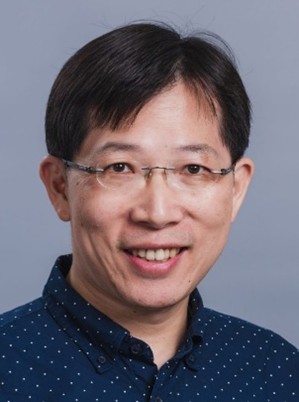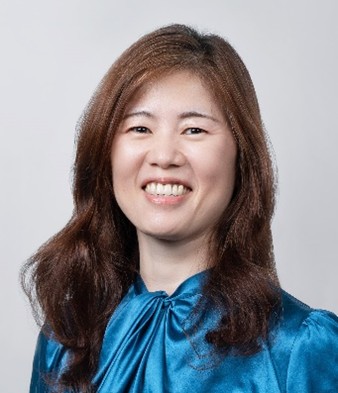We are delighted to host Professor's Peng and Chiang who will deliver a joint BVI Seminar.
Professor Wen-Hsiao Peng - On the Rate-Distortion-Complexity Trade-offs of Neural Video Coding
Abstract
Recent years have witnessed much research effort being focused on exploring the full potential of neural video coding. Conditional coding has become the mainstream approach. However, a recent study shows that combining residual coding and conditional coding in a conditional residual coding framework could potentially strike a better balance between complexity and rate-distortion performance. This aspect has yet to be explored fully. In addition, a central theme of video coding is how to leverage temporal information effectively for prediction. In contrast to the explicit buffering strategy adopted by traditional video codecs, which stores previously decoded frames for future temporal reference, there is an increasing number of end-to-end video codecs resorting solely to the implicit buffering strategy, which stores latent features for temporal prediction or conditional coding. Despite its promising coding performance, the implicit buffering strategy has little control of what latent features are learned and buffered, often resulting in excessive buffer requirements. In this talk, I will explore the rate-distortion-complexity trade-offs of these coding frameworks under various temporal buffering strategies (e.g. explicit, implicit, and hybrid approaches). We shall also look at a few early attempts at quantizing neural video codecs.
Biography
Dr. Wen-Hsiao Peng received his Ph.D. degree from National Yang Ming Chiao Tung University (formerly NCTU), Taiwan, in 2005. He was with the Intel Microprocessor Research Laboratory, Santa Clara, CA, USA, from 2000 to 2001, where he was involved in the development of International Organization for Standardization (ISO) Moving Picture Experts Group (MPEG)-4 fine granularity scalability. Since 2003, he has actively participated in the ISO/IEC MPEG digital video coding standardization process and contributed to the development of H.264/AVC Scalable Amendment, H.265/HEVC, H.265/HEVC Screen Content Coding Extensions (SCC), H.266/VVC, and JPEG AI. Dr. Peng is currently a Professor with the Computer Science Department, National Yang Ming Chiao Tung University (NYCU). He was a Visiting Scholar with the IBM Thomas J. Watson Research Center, Yorktown Heights, NY, USA, from 2015 to 2016. His research interests include neural network-based image/video coding, ISO/IEC & ITU-T video coding standards, visual signal processing, computer vision, etc. Dr. Peng was the Chair of the IEEE Circuits and Systems Society (CASS) Visual Signal Processing and Communications (VSPC) Technical Committee. He is the current EiC of the IEEE Journal on Emerging and Selected Topics in Circuits and Systems (JETCAS), and a Fellow of the IEEE.
Professor Jui-Chiu Chiang - Content-Adaptive Compression for 3D Gaussian Splatting
Abstract
3D Gaussian Splatting (3DGS) has emerged as a leading technique for real-time, high-fidelity 3D scene rendering due to its explicit nature and efficient rasterization. Nevertheless, the large number of Gaussian primitives required to represent detailed scenes results in substantial storage overhead, limiting its practicality. Efficient compression of 3DGS models is non-trivial due to the sparsity and unstructured nature of the Gaussians, coupled with complex spatial and attribute correlations. In my talk, I will provide a concise overview of current approaches to 3DGS compression and the fundamental challenges in achieving high compression rates while maintaining rendering quality. I will then present CAT-3DGS, a novel content-adaptive compression method utilizing triplane representations for rate-distortion optimization, and its extension, CAT-3DGS Pro, which incorporates a PCA-guided hyperprior and alternate optimization schemes to further enhance compression performance and computational efficiency. Experimental results demonstrate that our approaches achieve state-of-the-art compression and significantly improve training and decoding times, facilitating the deployment of 3DGS in bandwidth-constrained applications.
Biography
Jui-Chiu Chiang received the B.S., degree in electrical engineering from National Taiwan University, Taipei, Taiwan, in 1997, the M.S degree in electronic engineering from National Yang Ming Chiao Tung University, Hsinchu, Taiwan, 1999, and the Ph.D. degree in automatic and signal processing from Paris-Sud University, Orsay, France in 2004. Since August 2005, she has been with the Department of Electrical Engineering, National Chung Cheng University, Chia-Yi, Taiwan, where she is currently a professor. She served as a visiting scholar at Signal and Image processing Department, Télécom Paristech, Paris, France, from August 2012 to January 2013. Dr. Chiang is a Senior Member of IEEE. Her research interests include image/video compression, 360-degree image/video coding and streaming, high dynamic range image/video generation and compression, point cloud compression, learned point cloud compression, 3D Gaussian platting compression, and learning-based solutions for computer vision applications. Dr. Chiang is currently a member of the IEEE Circuits and Systems Society (CASS) Visual Signal Processing and Communications (VSPC) Technical Committee.


